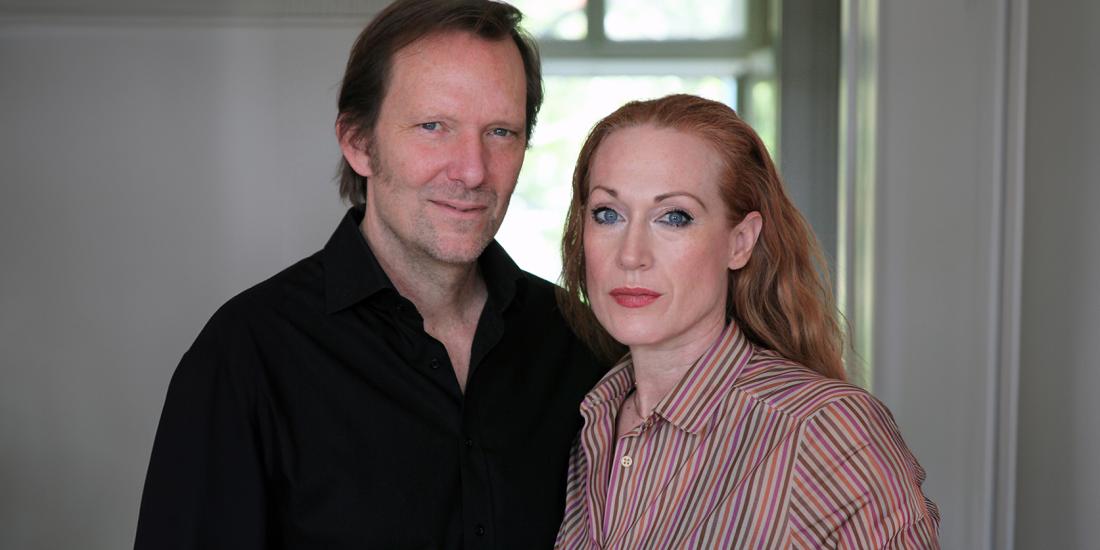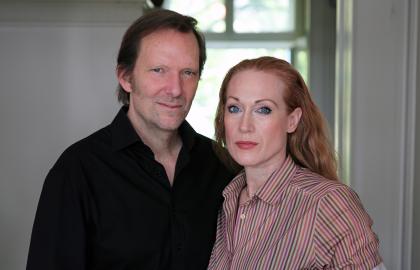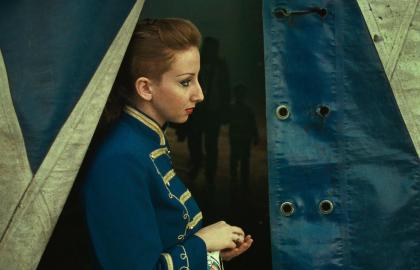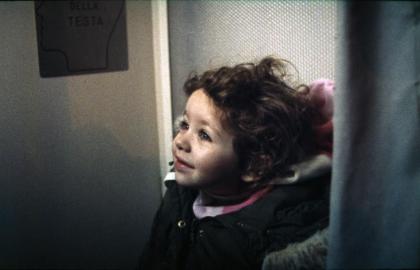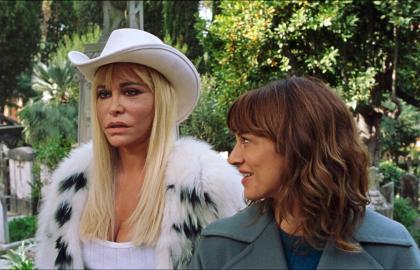Discover their films at Bozar in November
The start of our season is dedicated to love and artistic couples. One piece of work in the Love is Louder exhibition speaks of ‘staying power’ (I Love You by Melati Suryodarmo). You’ve been working together since 1996, so staying power is exactly what we’re talking about... How do you do it?
It is probably the contrasts and differences that have made our artistic collaboration possible for so many years. We complement each other in our work and are willing to cross our boundaries to achieve a common goal. Since there is no routine in our work, the process of filmmaking always remains very exciting and challenging for us.
“I grew up obsessed with beauty,” says Vera in your film. As people who love images, what does beauty mean to you?
What is perceived as "beautiful" is in the eye of the beholder, and Vera is a good example of this. At the beginning of the film, viewers are often confused by her appearance and demeanor, but at the end of the film they can see inside our main protagonist, and many suddenly find Vera beautiful. People tend to judge things and people they don't know and very often fall victim to entrenched prejudices, and we are not immune to them either. That is why in our film and photographic work we have a preference for outsiders, people who have been pushed to the margins of society even though they don't belong there. The love and respect we feel for them is an important aspect of our work.
For us, it's more important to create a family atmosphere on set than to make an impression with big lights and a huge team.
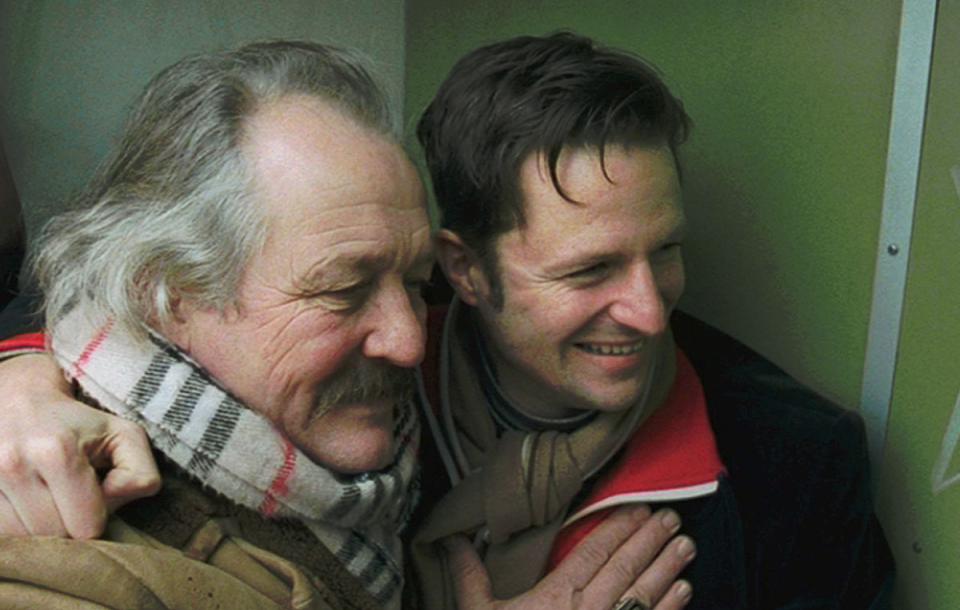
The authenticity of La Pivellina, your first feature film, was immediately noticed by critics, and your other films also exude this strength. Is it important to you to make ‘authentic films’?
We like every kind of cinema, but authenticity is important to us in our personal work as filmmakers. We started out as documentary filmmakers and have remained true to the approach that we find our greatest inspiration in reality. In our work, we are always in search of a truth that we will never find, but at least come close to.
You get very involved on the shoot and with your actors, who are often non-professionals. There’s a physical closeness on the set, a certain economy of means.... How does this way of working contribute to the film’s final result?
There are usually only two of us on set, Tizza does the sound, Rainer the camera and together we direct the film. Our technical equipment is reduced to the bare essentials and that naturally has a noticeable effect on the result. For us, it's more important to create a family atmosphere on set than to make an impression with big lights and a huge team.
You navigate between documentary and fiction. How do you ‘cover your tracks’? In other words, what is it about everyday life that appeals to you and deserves to be brought to the screen?
Our protagonists provide us with a great deal of personal information from their lives for our film work. We are allowed to use their real names, we film in their homes, we are allowed to include their entire environment. This naturally blurs the boundaries between reality and fiction.
we have a preference for outsiders, people who have been pushed to the margins of society even though they don't belong there. The love and respect we feel for them is an important aspect of our work.
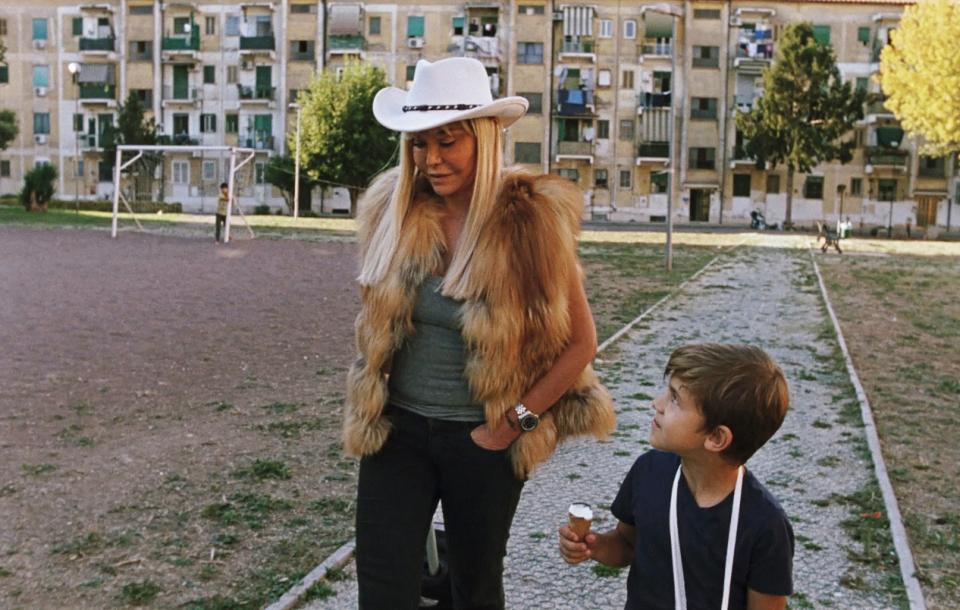
‘Between fiction and documentary’: what makes your work so special is not so much the genre itself, but rather the specific nature of the characters you bring to light, like Vera, whom you bring out of her father’s shadow. How do you make your choices? I’m especially interested in this question because two of you are making them...
People who fascinate us and with whom we enjoy spending time can sooner or later become our protagonists. The right time is usually when we think of a possible story for them. But it always starts with a long period of getting to know each other. Often many years pass before we have found the necessary trust that is necessary to make this kind of film. Once we have found the right story, the joint decision is easy.
Marc Michel is the only professional actor in the film Le trou (’The Hole’) whose screenplay is based on prisoners’ testimonies. I imagine that it’s no coincidence that you chose this film for your ‘carte blanche’ at Bozar. So did your desire to make films indeed emerge from listening to stories?
Yes, that's true, there is nothing more exciting for us than true stories and people who are also "real" in the film, because they play themselves and can therefore give the story a great deal of credibility. True stories also bring with them an unpredictable dramaturgy. Another aspect that particularly impressed us about "Le trou" is that Jean Keraudy really carried out this escape many years ago. The way he moves, the way he talks to the prisoners and the guards, the way he makes the objects he uses for the escape, all of this is documentary and unsurpassed in its intensity and fascination.
